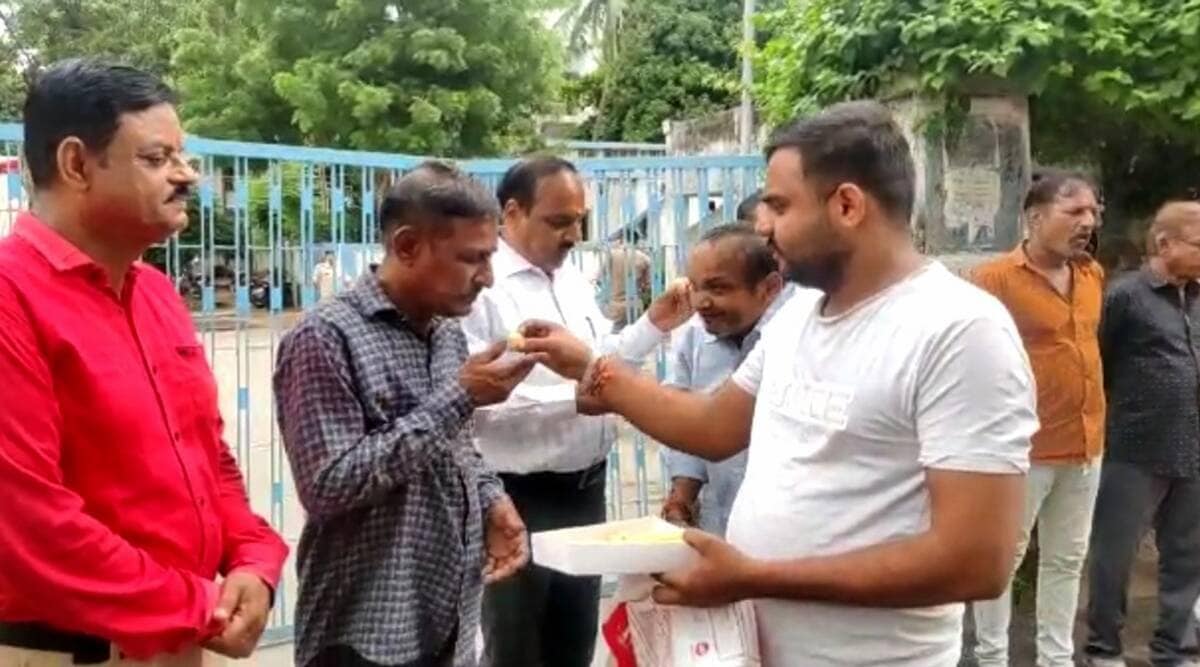 The survivor’s historic struggle against mass rape and mass murder as crimes against humanity should have been acknowledged as an important chapter in our quest for freedom. (File Photo)
The survivor’s historic struggle against mass rape and mass murder as crimes against humanity should have been acknowledged as an important chapter in our quest for freedom. (File Photo)On the 75th anniversary of Independence, 11 men convicted for mass rape and murder in the Bilkis Bano case were released prematurely following the decision to grant “mass” remission. This release, during the Azadi Ka Amrit Mahotsav celebrations, stole from women a sense of security and justice, which independent India had promised. It denied Muslim women and indeed all women, a place in this moment of celebration.
The survivor’s historic struggle against mass rape and mass murder as crimes against humanity should have been acknowledged as an important chapter in our quest for freedom. Instead, images were released of the rapists being honoured and welcomed back into political society in Gujarat. Disturbing commentaries were telecast suggesting that the rapists could not have possibly committed such crimes by virtue of their caste and kinship.
Those who have not read these judgments must do so to instruct themselves about how the nation failed Muslim women. This was one of the first cases in the history of independent India where the judiciary found overwhelming evidence of mass rape and murder of Muslims. The Supreme Court transferred the trial to Bombay courts upon finding evidence that the state of Gujarat did not create safe conditions of testimony for Muslim victims and witnesses. The Supreme Court even recognised the split public where feminist or human rights critique directed at state impunity was construed as an attack on Gujarati asmita. And it ordered the expunging of the allegations of the Gujarat state which caricatured lawyers and activists as anti-national and anti-social.
Today, this has become the norm — lawyers, academics and activists who challenge state impunity are often dubbed as anti-national. This discourse has been incorporated into the penal policy of the state today. In this changed socio-legal context, the Supreme Court considered the plea for remission and decided that the state of Gujarat had jurisdiction. It did not consider the sociological context of “reformation” in the state of Gujarat. While lawyers have stated the legal reasons for why the remission is bad in law, the Supreme Court’s findings of why the transfer was necessary in the first place back then continue to hold salience today. The defence and celebration of the mass rapists furnishes proof of this.
If the issue of sexual violence has been used to expand the carceral power of the state, equally the language of pardon masks sexual impunity. In 2013, the memory of sexual violence during the Gujarat 2002 mass violence was de-linked to mainstream anti-rape protests. The Nirbhaya anti-rape struggle was represented as the first mass movement against sexual violence, yet it did not mainstream feminist struggles against sexual impunity in 2002. This has come to haunt us today. For since 2013, every major anti-rape protest has been instrumentalised to strengthen state power. The introduction of long-distance acoustic devices to be used against protestors in Delhi coincided with the protests following the December 16, 2012 rape and murder case. The rise of masculine state forensics ironically coincides with the December 16 protests. The governance of outrage is marked by encounter killings, lynching and even criminalisation of protestors and journalists. And languages of compromise, reform, rehabilitation, remission, perjury and contempt are used against those women who are raped on the grounds of their identity. Feminist outrage is now also seen as defamatory of the state. Perhaps this is because feminists argue that the fight against the expansion of carceral power must challenge state impunity.
Even as the Supreme Court hears this matter, it needs to be said loudly and clearly that the trauma inflicted on Bilkis and her family is unpardonable. The judiciary must reflect on how this decision was indifferent to the fact that each stage of the case has been indescribably traumatic for the survivor, witnesses, and her support persons. This trauma, which is simultaneously individual and collective, has been inflicted yet again 20 years later.
The legal process dehumanises rape survivors. And the legal response to the extreme de-humanisation of this sexual violence can never be translated in legal language other than through its sentencing policy. Who decides remission? Do they take the victim’s perspective into account? Surely remission (routine or special) is used as a technique to entrench state impunity. After all, these men were chosen over other convicts as deserving of freedom.
The political symbolism of the mass remission marked as “special” on the 75th grand festival of freedom is wounding. It is nothing less than an act of symbolic violence. It unveiled the majoritarian grammar of the penal policy of the state which directed freedom to men who committed inhuman mass crimes against Muslim women. Surely, the struggle against sexual violence for all women cannot be at the cost of Muslim women in India.
The writer is associate professor, Centre for the Study of Law and Governance, JNU